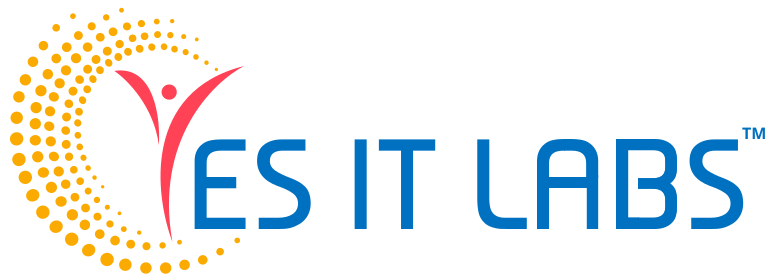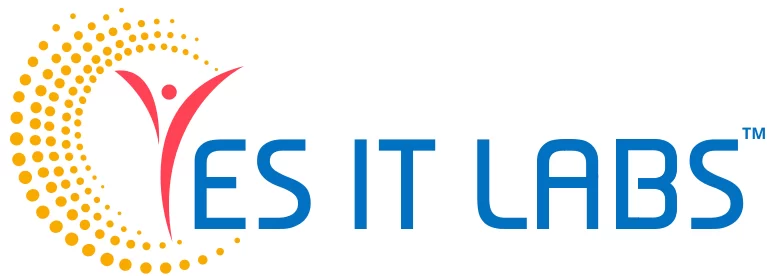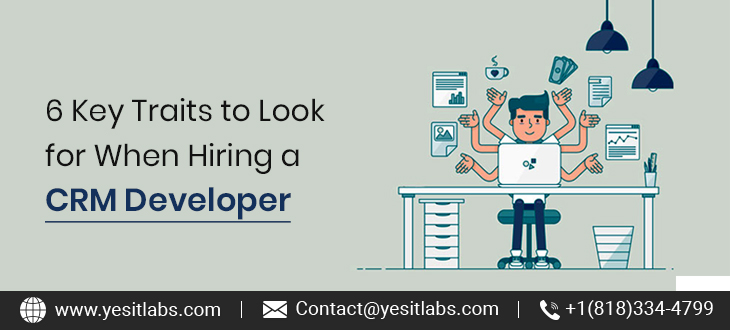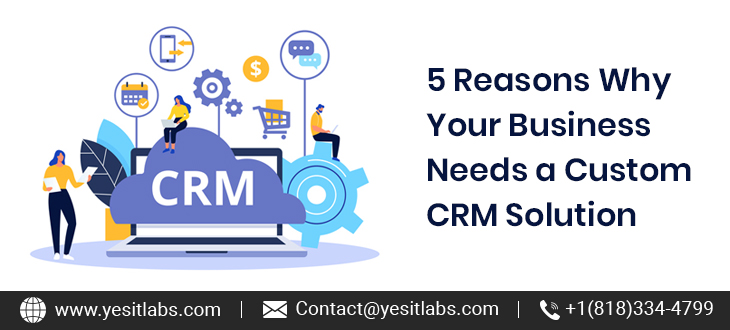In today’s competitive business environment, hiring CRM Developer is crucial for companies aiming to streamline customer interactions, boost sales efficiency, and enhance customer service. A CRM (Customer Relationship Management) system acts as the backbone of customer engagement, allowing businesses to automate workflows, analyze customer data, and improve overall operations.
As the demand for CRM solutions grows, companies often turn to custom software development services to tailor CRM platforms to their specific needs. Whether integrating Salesforce, Zoho, or an open-source alternative, hiring a skilled CRM Developer ensures seamless implementation and customization.
In this guide, we’ll explore the six key traits every business should look for when hiring a CRM Developer and why businesses, including those seeking a software development company in the USA, should prioritize finding the right talent.
6 Key Traits of a Successful CRM Developer
1. Strong Understanding of Sales and Business Processes
A CRM Developer must have a deep understanding of sales workflows, customer interactions, and business processes. Different companies follow unique sales strategies, and a CRM Developer should be able to tailor solutions that align with these processes. A mismatch between your business needs and CRM functionalities can lead to inefficiencies and lost revenue.
2. Proficiency in CRM Platforms and Customization
CRM Developers should be well-versed in leading platforms like Salesforce, HubSpot, Zoho, Microsoft Dynamics, and Vtiger. More importantly, they should have the ability to customize these platforms to meet specific business needs. This includes:
- Developing custom modules.
- Automating workflows.
- Creating tailored dashboards and reports.
- Ensuring seamless integration with other software systems.
3. Flexibility and Adaptability
As businesses evolve, their CRM requirements change. A good CRM Developer should be adaptable, capable of modifying CRM functionalities, and willing to scale the system as the organization grows. They should also be open to learning new technologies and implementing industry best practices.
4. Strong Data Management and Analytical Skills
CRM systems handle vast amounts of customer data, including transaction histories, communication logs, and customer feedback. A CRM Developer should:
- Understand data structuring and management.
- Implement effective data security measures.
- Analyze CRM data to provide actionable insights for business growth.
Additionally, businesses working with a custom software development service can benefit from advanced CRM customization, ensuring their system aligns perfectly with their operational needs.
5. Problem-Solving and Resourcefulness
Many CRM Developers work in dynamic environments where challenges arise frequently. The ability to troubleshoot and resolve technical issues quickly is a crucial trait. Moreover, a good CRM Developer continuously seeks innovative solutions by researching the latest CRM trends, reading blogs, and engaging in professional communities.
6. Strong Communication and Training Abilities
A CRM system is only as effective as the people using it. A skilled CRM Developer should be able to train employees on CRM functionalities, ensuring smooth adoption across departments. They should also communicate technical concepts in a way that non-technical staff can understand.
Steps to Hire the Best CRM Developer
1. Define Your CRM Requirements
Before starting the hiring process, take the time to clearly outline your business needs and CRM objectives. Consider the following factors:
- CRM platform selection: Identify whether you are using Salesforce, Zoho, HubSpot, or a custom-built CRM.
- Customization needs: Determine the level of personalization required, such as automated workflows, dashboards, and reporting.
- Integration requirements: Ensure compatibility with other business tools like ERP systems, email marketing software, or customer support platforms.
- Budget and project scope: Define the financial resources and timeline for CRM implementation or enhancement.
By establishing these requirements, you create a clear framework to assess potential candidates effectively.
2. Look for Relevant Experience
Experience plays a crucial role in hiring the right CRM Developer. Look for candidates who have:
- Worked with businesses in your industry, understanding sector-specific CRM needs.
- Hands-on experience in customizing and deploying CRM platforms.
- Knowledge of both front-end and back-end CRM functionalities.
- A background in working with software development companies in the USA, as they often handle diverse and complex CRM projects.
Hiring a professional with domain expertise ensures they can navigate industry-specific challenges and provide tailored CRM solutions.
3. Assess Technical and Problem-Solving Skills
Technical proficiency is one of the most critical aspects when hiring a CRM Developer. During the interview and evaluation process, assess:
- Their ability to develop, customize, and optimize CRM applications.
- Proficiency in CRM-related programming languages such as JavaScript, Python, or Apex (for Salesforce).
- API integration skills to ensure smooth data flow between CRM and other business tools.
- Their approach to troubleshooting common CRM-related issues.
- Their ability to leverage automation and AI-driven CRM enhancements.
A hands-on technical test or coding challenge can help you gauge a candidate’s problem-solving abilities in real-world scenarios.
Also you can hire Salesforce developer from our talented team for your Salesforce development needs.
4. Check References and Past Projects
A CRM Developer’s previous work can speak volumes about their expertise and reliability. Before making a hiring decision, be sure to:
- Request case studies: Ask for documented examples of past CRM implementations and how they improved business processes.
- Review testimonials: Look for feedback from previous clients or employers to assess their work ethic and professionalism.
- Analyze their portfolio: Evaluate the complexity and scale of CRM projects they have handled.
Speaking with former employers or clients can provide insights into a candidate’s ability to meet deadlines, problem-solving approach, and overall competency.
5. Prioritize Long-Term Compatibility
Hiring a CRM Developer is a long-term investment in your business’s customer relationship strategy. Look for candidates who:
- Show a willingness to stay updated with the latest CRM trends and technologies.
- Can scale and evolve your CRM system as your company grows.
- Demonstrate a proactive approach to optimizing and upgrading CRM functionalities over time.
- Have strong interpersonal skills, ensuring seamless collaboration with various departments within your company.
Choosing a developer who is aligned with your business’s long-term goals ensures that your CRM system remains efficient, relevant, and adaptable to future challenges.
Why Businesses Need a CRM Developer Today
Modern businesses rely heavily on CRM systems to enhance customer relationships, improve marketing strategies, and increase sales conversions. With digital transformation accelerating across industries, companies cannot afford to use outdated or inefficient CRM systems.
Investing in a skilled CRM Developer can provide significant advantages, such as:
1) Increased operational efficiency through process automation, eliminating manual data entry, and streamlining workflows.
2) Enhanced customer insights by collecting and analyzing customer data to offer personalized interactions and targeted marketing strategies.
3) Better sales performance with advanced lead tracking, AI-driven recommendations, and real-time data analytics that help sales teams close deals more effectively.
4) Seamless integration with third-party tools, including marketing automation platforms, ERP systems, and customer support software, ensuring all business functions are aligned.
5) Scalability and customization, allowing businesses to modify their CRM system as they grow, adapting to new market demands and operational requirements.
A well-implemented CRM system improves internal communication between departments, ensures compliance with data protection regulations, and enhances overall customer satisfaction. By leveraging the expertise of a CRM Developer, companies can future-proof their CRM strategy, making it a powerful tool for long-term business growth.
Conclusion
Hiring a CRM Developer is a strategic investment that directly influences a company’s efficiency, customer relationships, and revenue growth. Whether you are a startup or an established business looking for a software development company in the USA, choosing the right professional is key to ensuring your CRM system is tailored to your business needs.
By focusing on these six key traits—business acumen, technical expertise, adaptability, data management skills, problem-solving, and communication abilities—you can make informed hiring decisions.
Partnering with experienced CRM Developers, like those at YES IT Labs, can help you unlock the full potential of your customer relationship management strategy. Their team of skilled professionals specializes in designing and implementing innovative CRM solutions that align with your business goals and drive measurable success.



